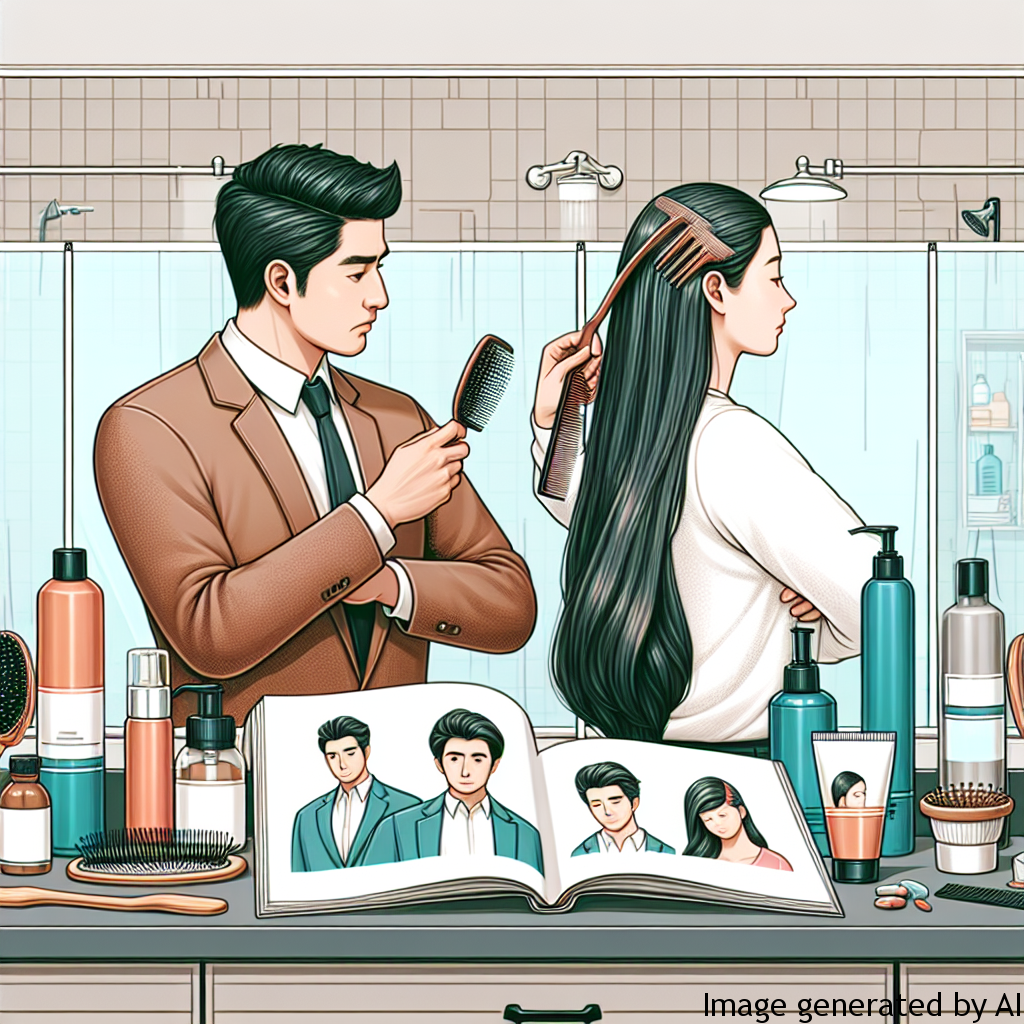Introduction
Hair loss, a prevalent issue affecting both men and women, can profoundly impact psychological health, primarily due to societal expectations and gender-specific norms. Traditionally, hair is often associated with beauty and youth–for women, it’s typically synonymous with femininity, while for men, it’s linked to virility. Consequently, losing one’s hair can become an emotionally draining and stress-inducing event. Understanding how societal expectations and gender roles affect our perception of hair loss is pivotal to addressing the issue at its roots and to provide better hair care solutions.
Gender Expectations and Their Effect on Men’s Psychological Health
Societal Expectations
For centuries, thick, full hair has been considered a symbol of strength and masculinity in men. Society’s expectations often dictate that men should be physically appealing in specific ways to embody the stereotypical image of manliness, and hair is a significant part of this image.
The Psychological Impact
Hair loss can trigger feelings of embarrassment and reduced self-esteem in men, largely due to these unrealistic societal pressures. Some men may fear that they will be less attractive or desirable to their partners. This psychological strain can escalate into chronic stress or depression, negatively affecting other aspects of their lives.
Examples of How Gender Roles Can Influence Men’s Lives
Gender roles and societal norms can place an immense burden on men, impacting their mental well-being. Hair loss, visibly different from societal expectations, may result in stigmatization and prejudice. A common misconception is that balding men are older, whether physically, intellectually, or socially. These expectations could manifest themselves in professional settings, where despite qualifications and skills, some men may be viewed as less competent or less valuable due to hair loss.
Tips for Enhancing Psychological Health Considering Gender Roles
To combat the detrimental effects of gender roles and hair loss on men’s psychological health, the following steps may be helpful:
- Consulting with a professional: Therapists and counselors can provide tools to navigate through feelings of stress, anxiety, and self-esteem issues.
- Seeking support: Joining support groups or forums can also help. Sharing experiences and coping mechanisms with those undergoing similar experiences can improve mental health.
- Medical interventions: If hair loss causes significant distress, consulting with a dermatologist or a trichologist might be beneficial. Various treatments, including minoxidil, finasteride or even hair restoration surgeries, can potentially change the progression of hair loss.
- Healthy lifestyle changes: Regular exercise and a nutritious diet may enhance overall health and, in some cases, slow down hair loss.
Conclusion
Societal beauty standards and expectations can severely affect men’s psychological health when dealing with hair loss. Recognizing these harmful gender roles and stereotypes is the first step towards altering our perception of masculinity. A multifaceted approach combining professional health, mental well-being, peer support, and possibly medical intervention can alleviate the psychological stresses associated with male hair loss. Most importantly, fostering a more inclusive, diverse society that encourages self-acceptance and compassion for others, regardless of their appearance, is vital in improving mental health and combating the stigma around hair loss.

